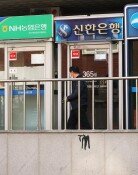A 17-year-old Korean Schoolgirls Essay Touches America
A 17-year-old Korean Schoolgirls Essay Touches America
Posted April. 21, 2005 23:31,
On April 19, at the Abraham Lincoln Presidential Museum opening ceremony held in Springfield, Illinois, the U.S., a schoolgirl in black hair stood on the platform in line with President George W. Bush, governor of Illinois, and federal Senators.
She started to read an essay on the subject of a new country, new century, and new freedom. She (Lee Mi-han (17)) is a Korean 11th grader (the second grader at high school of Korea) at the Georgetown Day School in Maryland. She stood there as the winner of the grand prize in a nationwide essay contest sponsored by C-SPAN, broadcasting company that specializes in covering U.S. government affairs, as a part of the opening celebration of the Abraham Lincoln Presidential Museum. As many as 5,400 participated in the essay contest.
She wrote about her the late maternal great-grandfather, Dr. Geonjae Jeong In-seung, whom Japanese authorities imprisoned because he compiled a Korean language dictionary under Japanese colonial rule. He was born in Jangsu, Jeonbuk, and was put in jail for taking part in the compilation of the Great Dictionary that was set by the Joseon Language (Korean Language) Research Society from 1936 after graduating from the department of liberal arts at Yeonhee College. After the independence from Japan, he became a professor and later president at Jeonbuk National University.
My Understanding of Freedom Is Closely Connected With My Understanding of Languages.-
In the 1940s, when the Japanese government prohibited people from using the Korean language, my maternal great-grandfather was persecuted because he made a Korean Language dictionary for the first time in Korea. He believed that banning people from speaking languages, which are a link that allow people to understand each others values and to communicate with each other, was infringing on the freedom of values. I have discussed gay marriage rights and the Iraq war with friends. Freedom in the 21st Century means individual freedoms, regardless of ones age, race, gender, and status, and the arguments to keep those freedoms, will never be stopped.
Her essay was comparatively short because of a 272-word length limit: the same length as Lincolns Gettysburg Address.
She said to reporters, Although the theme was Lincoln and the birth of new freedom, I wrote about the inspiration I received from my late maternal great-grandfather to come up with a comprehensive theme of freedom.
Her father, Dr. Lee Jong-hun (a pathologist at the U.S. Food and Drug Administration) and her mother, Park Yu-mi (English literature professor at Georgetown University) frequently appeared on the broadcast by the C-SPAN.
The C-SPAN introduced her to the public as scoring high enough on the SAT to enter any universities in America. Following the C-SPANs comment, President Bush said, I want to express my special appreciation of her essay that depicted life in free societies.
It was reported that she had said earlier, I was so surprised to receive the grand prize, adding, That essay was just homework.
Seung-Ryun Kim srkim@donga.com



![“한동훈, 정치생명 걸고 무소속 출마해 평가받는 것 고려할만”[정치를 부탁해]](https://dimg.donga.com/c/138/175/90/1/wps/NEWS/IMAGE/2026/01/19/133186982.1.jpg)
![‘건강 지킴이’ 당근, 효능 높이는 섭취법[정세연의 음식처방]](https://dimg.donga.com/c/138/175/90/1/wps/NEWS/IMAGE/2026/01/18/133181291.1.jpg)


